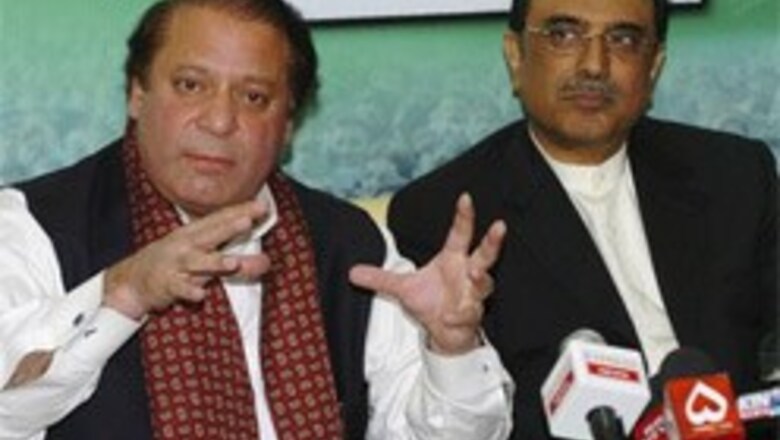
views
Islamabad: Pakistan's controversial anti-corruption watchdog on Tuesday filed an application in a court seeking resumption of a trial against former premier Nawaz Sharif and his brother Shahbaz on graft charges, in what would be seen as a politically motivated move.
The move by the National Accountability Bureau (NAB), which falls under law ministry, to reopen the case comes just nine days after Sharif pulled his PML-N party out of the PPP-led ruling coalition.
There was no immediate reaction from the Sharif brothers to the move to reopen charges against them.
These cases had been indefinitely adjourned last month by an anti-corruption court in Rawalpindi on technical grounds.
Stating that the court's decision on August 21 to adjourn the trial was "mistaken" and contained errors, NAB said that the anti-corruption court will take up the application for hearing on Thursday.
In these cases former Premier Nawaz Sharif and his brother Shahbaz, the Chief Minister of Punjab province, are accused of siphoning off millions of rupees through tax frauds and money laundering.
The trial against them relates to a paper mill, foundries and assets at Raiwind in Lahore which were claimed to have been acquired through illegal wealth.
The Sharif brothers have denied the corruption charges and described them as politically motivated.
NAB's move surprised many in political circles as the Senate or upper house of parliament had recently unanimously passed a resolution for abolition of the anti-corruption watchdog after its officials allegedly manhandled Senator Safdar Abbasi of the ruling PPP.
A spokesman for NAB had said last week that a high-power committee headed by the Law Minister was framing recommendations to repeal the NAB Ordinance and to replace it with a new law to ensure "accountability across the board".
Lawyers and civil society groups too had appreciated the move to repeal the NAB Ordinance, which they said was used by the previous government to victimise political opponents and as a tool to "buy the loyalties of members of political parties".




















Comments
0 comment